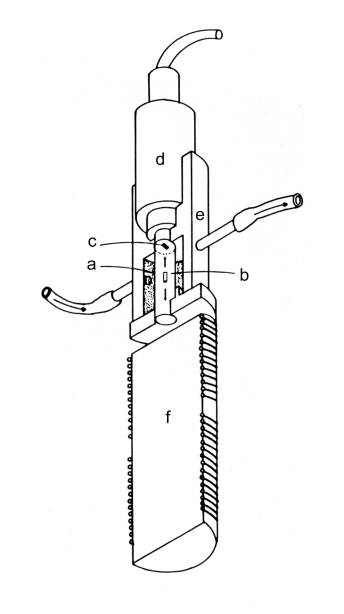Synovial Fluid Viscoelasticity
Osteoarthritis (OA), a disease resulting in the erosion of the joint lining, is a debilitating condition afflicting millions of people around the world. There is a dire need for treatments that stop or at least delay the erosion of the joint lining. Healthy synovial fluid is a natural lubricant in the joint. In persons with OA, the synovial fluid has been shown to have less effective lubrication.
The objective of my research is to evaluate whether the dietary supplements glucosamine and chondroitin sulfate (GCS) are effective in treating OA. Effectiveness will be determined by measuring the changes in the viscosity of synovial fluid with an increase in viscosity demonstrating a positive response to the treatment.
We have seen that in the group of patients enrolled in our study there was no difference in synovial fluid viscosity between the GCS and Placebo groups.
At right is a diagram of the Microrheometer. a: sample tube, b: cylinder, c: ultrasound crystal, d: ultrasound transducer, e: water jacket. 
The next phase of this research is to further characterize the rheologic properties of synovial fluid. This includes evaluating normal synovial fluids as well as using new equipment such as the Q-Sense to measure the viscoelastic properties of both diseased and healthy fluids.
For more information please see: http://etd.fcla.edu/etd/uf/2001/anp4318/B.CONRAD-THESIS8-03.pdf
Or the Q-Sense webpage: